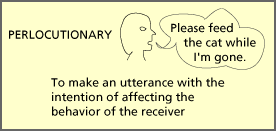PARTS OF SPEECH.
Noun: Is a word used to name a person, animal, place, thing.
1. Genre nouns: Many nouns would change form depending on their genre for example a man was called an ''author' while a woman was called and ''authoress''.
2. Plural nouns: Change the form of the noun to plural adding some letters for example: (wolf-wolves) (city-cities) (box-boxes) (truth-truths).
3. Possessive nouns: A noun or pronoun changes its form to show that it owns or is closely related to something. For example: Ricardo's bike is awesome
Pronoun: A pronoun can replace a noun or another pronoun. You use pronouns like he, which, none, you to make your sentences.
Verb: Describe something about the subject of the sentence and express actions, events or states of being.
Adjectives: Adjectives describe words like Large, yellow, tall, small, big, smart, ugly etc... For example A big house.
Adverbs: its word that joins to a verb or a adjetive to modify his meaning. For example (friend-friendly)
(love-lovely) (real-really) ------> I really want cheetos.
Conjuction: Connect parts of a sentences some examples are: and, but, or, yet, for, so.
Interjections: Interjections are words or phrases used to exclaim, protest or command. For example: wow, yeah, ouch, hey, pew etc....
1. Genre nouns: Many nouns would change form depending on their genre for example a man was called an ''author' while a woman was called and ''authoress''.
2. Plural nouns: Change the form of the noun to plural adding some letters for example: (wolf-wolves) (city-cities) (box-boxes) (truth-truths).
3. Possessive nouns: A noun or pronoun changes its form to show that it owns or is closely related to something. For example: Ricardo's bike is awesome
Pronoun: A pronoun can replace a noun or another pronoun. You use pronouns like he, which, none, you to make your sentences.
Verb: Describe something about the subject of the sentence and express actions, events or states of being.
Adjectives: Adjectives describe words like Large, yellow, tall, small, big, smart, ugly etc... For example A big house.
Adverbs: its word that joins to a verb or a adjetive to modify his meaning. For example (friend-friendly)
(love-lovely) (real-really) ------> I really want cheetos.
Conjuction: Connect parts of a sentences some examples are: and, but, or, yet, for, so.
Interjections: Interjections are words or phrases used to exclaim, protest or command. For example: wow, yeah, ouch, hey, pew etc....












